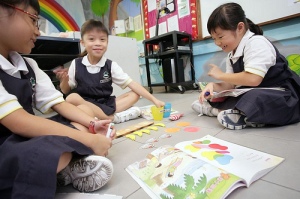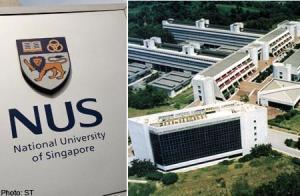
Just for Laugher. For Singapore Parents.
A Singapore edition of a blog post : http://blogs.greatschools.org/greatschoolsblog/2012/04/public-vs-private-school-a-drama-in-interminable-acts.html
A Conversation Between A Couple Discussing About Tuition. (Not based on true story)
—–
Husband: This is crazy. We can’t afford to send both children for both group tuition and home tuition. I don’t know why you’re even contacting a tuition agency.
Wife: Because PSLE and O Level are approaching. We need to ensure that they can get into the top schools.
Husband: Paying $1000 plus a month for all the tuition isn’t an option. It’s out of the question.
Wife: At least primary school tuition is only $400.
Husband: You’re kidding me, right?
Wife: OK, It’s more like $450.
Husband: We. Can’t. Do. This.
Wife: We might get financial aid.
Husband: Even if we get a few hundreds, the tuition fees will still be overbearing.
Wife: But we have savings!
Husband: That’s before the market crashed.
Wife: But we still have our CPF. We should invest in the future: our children! We’re old, disposable, our lives are almost over.
Husband: We’re not 88! We’re just 38. We could live another 50 years if my boss doesn’t sack me.
Wife: But when we get old, I don’t want to be a burden to them. When the time comes, we should migrate elsewhere and leave them alone.
Husband: I do not want to go anywhere. Singapore is my home!
—
*The above post is not meant to offend anyone. Cheers!
We strongly advise parent to find a single good home tutor or tuition center. Overwhelming the children with too much stress will not be good in the long run.






![Mobile Studying & Online Flashcards on Smartphones [Infographic]](https://i0.wp.com/www.studyblue.com/projects/infographic-mobile-studying-online-flashcards-on-smartphones/images/mobilestudying_08_embed.png)
You must be logged in to post a comment.